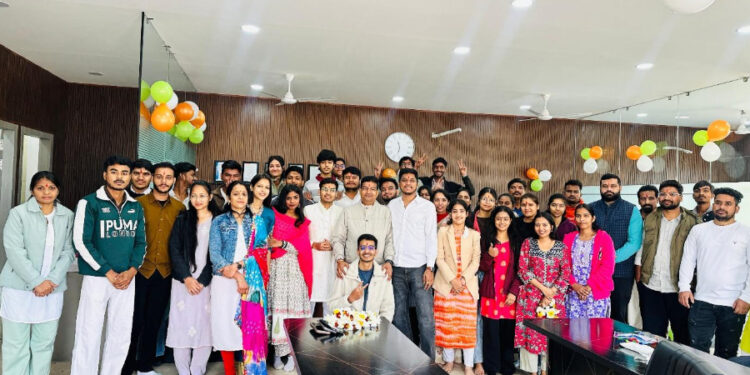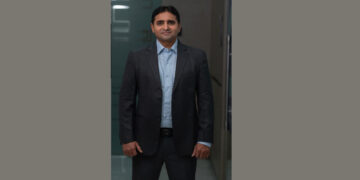The Indian real estate market is witnessing a remarkable transformation, propelled by the integration of technology and a renewed focus on customer-centricity. As one of the largest contributors to the nation’s GDP, the sector has evolved from its conventional roots into a thriving industry driven by innovation, sustainability, and the changing demands of luxury living.
In this dynamic landscape, leaders like Mrinaal Mittal, Director of Unity Group, are redefining the rules of the game. With a rare combination of technology expertise from the University of Illinois and business acumen honed at IIM Bangalore, Mittal exemplifies a new breed of real estate leaders who seamlessly merge tradition with modernity. His work not only reflects Unity Group’s pioneering ethos but also sets a precedent for the industry at large.
The Evolution of India’s Real Estate Market
India’s real estate sector has always been a reflection of its economic growth. Traditionally dominated by residential and commercial properties, the market is now diversifying to include luxury housing, smart homes, and eco-friendly projects. Urbanization, a burgeoning middle class, and increased foreign direct investment have further catalyzed this growth.
However, the landscape is not without its challenges. Delayed project deliveries, lack of transparency, and environmental concerns have often marred the industry’s reputation. This is where the infusion of technology, coupled with a focus on sustainability, is proving to be a game-changer.
Unity Group: Redefining Luxury and Innovation
Unity Group is setting new benchmarks in the North Indian real estate market with contributions from top management. Known for its commitment to quality, the group has consistently delivered iconic projects that combine innovation with timeless elegance. From cutting-edge smart homes to environmentally conscious designs, Unity’s projects resonate with the aspirations of modern buyers.
Mittal’s philosophy is rooted in creating experiences, not just structures. “Real estate today is not just about building homes; it’s about enhancing lives through innovation and sustainability,” he explains. This vision is evident in Unity’s recent ventures, which seamlessly integrate technology into everyday living.
The company’s projects incorporate features such as AI-powered security systems, energy-efficient designs, and digital interfaces for customer engagement. By focusing on these elements, Unity is not only meeting but exceeding customer expectations.
Technology: The Backbone of Transformation
The integration of technology in real estate is no longer optional—it is imperative. Unity Group, under Mittal’s guidance, has embraced this change wholeheartedly. From automating construction processes to leveraging AI for customer insights, the company is setting a new standard for efficiency and innovation.
“Technology allows us to anticipate and address customer needs more effectively, ensuring that our projects are luxurious, sustainable, and future-ready,” Mittal says. This forward-thinking approach has enabled Unity to streamline operations, reduce project delays, and maintain impeccable quality standards.
Moreover, digital platforms have revolutionized customer engagement, making the buying process more transparent and personalized. Virtual property tours, AI-based recommendations, and real-time updates are enhancing the overall experience for buyers.
Sustainability: A Growing Priority
With environmental concerns at the forefront, sustainability has become a cornerstone of modern real estate. India’s commitment to reducing its carbon footprint has spurred developers to adopt green building practices.
Unity Group is leading this charge by incorporating eco-friendly designs and energy-efficient technologies in its projects. From solar energy utilization to water conservation systems, Unity’s developments prioritize environmental stewardship without compromising on luxury.
Looking Ahead: The Road to Global Recognition
India’s real estate market is poised for unprecedented growth, with estimates suggesting it will reach a market size of $1 trillion by 2030. However, to sustain this momentum, the industry must continue to embrace innovation and adopt global best practices.
Mittal envisions a future where India is recognized as a global leader in real estate innovation. His active participation in industry forums and advocacy for technology-driven growth are helping shape this narrative. “Our goal is not just to build projects but to contribute to India’s journey as a global hub for real estate innovation,” he asserts.
Conclusion
The Indian real estate market stands at a crossroads, where tradition meets innovation and challenges breed opportunities. New age thinkers like Mrinaal Mittal are playing a pivotal role in this transformation, ensuring that the sector not only grows but thrives sustainably.
With his acumen and inputs, Unity Group exemplifies how technology, customer-centricity, and sustainability can converge to create iconic landmarks. As India’s real estate market continues to evolve, it is stakeholders like Mittal who will define its future, one innovative project at a time.


















